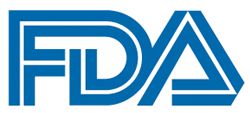FDA Grants Novel Agent Orphan Drug Designation for Adenoid Cystic Carcinoma
The FDA has granted AL101 with an orphan drug designation for the treatment of patients with adenoid cystic carcinoma.

The FDA has granted AL101 with an orphan drug designation for the treatment of patients with adenoid cystic carcinoma.1
AL101 is a potent and selective inhibitor of gamma secretase-mediated Notch signaling, which is important in the development of many tumors. The novel agent is currently being investigated in the phase II ACCURACY trial of patients with adenoid cystic carcinoma harboringNOTCHactivating mutations (NCT03691207).
“Receiving Orphan Drug Designation from the FDA signifies our continued progress and commitment to develop AL101 as a potential treatment for people with adenoid cystic carcinoma,” said Roni Mamluk, PhD, CEO of Ayala Pharmaceuticals, in a statement.
The FDA’s orphan drug designation is granted to drugs intended for the treatment of rare diseases that affect less than 200,000 people in the United States. Approximately 14,873 people in the United States are living with adenoid cystic carcinoma, which has limited treatment options available. The designation allows for assistance from the FDA in clinical trial design and additional development incentives.
Preclinical results for AL101 monotherapy in patient-derived xenograft models of adenoid cystic carcinoma were presented at the 2019 American Association for Cancer Research Annual Meeting.2The agent had previously been explored in a phase I trial of patients with locally advanced or metastatic solid tumors and had demonstrated a partial response in 1 patient with adenoid cystic carcinoma and prolonged stable disease in a second, leading the investigators to pursue further research with the agent in this tumor type.3
In the preclinical study,2significant tumor growth inhibition was seen in both models with activatingNOTCHmutations. The same effect was not seen in the models withoutNOTCHmutations. Additionally, combination treatment with cisplatin and everolimus did not improve the benefit. The preclinical trial served as proof of concept for the phase II trial.
“Given the proof of concept demonstrating that AL101 has a significant inhibitory effect on tumor growth in a mouse model using implanted ACC patient-derived xenograft tumors coupled with the significant unmet need in adenoid cystic carcinoma, we look forward to accelerating AL101 development for patients in the US,” Mamluk said.
The ongoing, single-arm phase II ACCURACY trial is seeking to enroll 36 patients with recurrent or metastatic adenoid cystic carcinoma who harborNOTCH1/2/3/4activating mutations. Patients with gastrointestinal diseases, such as inflammatory bowel disease, that increase the risk of diarrhea and those with infections or symptomatic central nervous system metastases were not eligible for the trial.
The primary endpoint of the trial is objective response rate by RECIST criteria, and secondary endpoints include the frequency, duration, and severity of adverse events.
References:
- FDA Grants Orphan Drug Designation to Ayala’s AL101 for Potential Treatment of Adenoid Cystic Carcinoma (ACC) [press release]. Rehovot, Israel & Wilmington, DE: Ayala Pharmaceutics; May 13, 2019. https://bit.ly/2vXpwfV. Accessed May 14, 2019.
- Ferrarotto R, Alpert G, Gluschnaider U, et al. AL101 mediated tumor inhibition in Notch mutated ACC PDX models. Presented at: 2019 AACR Annual Meeting; March 29-April 3, 2019; Atlanta, GA. Abstract 4885.
- El-Khoueiry AB, Desai J, Iyer SP, et al. A phase I study of AL101, a pan-NOTCH inhibitor, in patients (pts) with locally advanced or metastatic solid tumors.J Clin Oncol.2018;36(suppl 15; abstr 2515). doi: 10.1200/JCO.2018.36.15_suppl.2515.